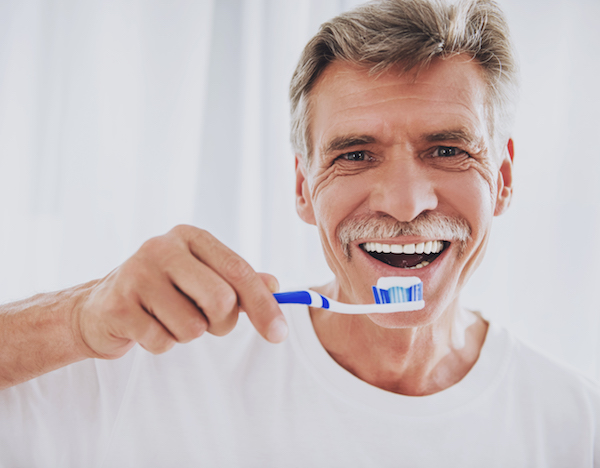Dental Care For Older Adults

Dental care today has made tremendous leaps and bounds since the 1940s. With all the medical advances since then, there are still many people born prior to World War II who may be lacking in oral hygiene care. Regular trips to the dentist were not commonplace in those days, nor was fluoride or floss. As a result, many older individuals today experience a high level of tooth loss, cavities and gum disease. Today, nearly one out of every four people over the age of 65 has lost all of their teeth. A shocking number given all that we know on dental hygiene today.
Poor oral health is often telling on the person’s overall health as well, as the two are most often interrelated. Taking your loved one to the dentist may not necessarily occur to you unless they are complaining of aches within their mouth, but getting regular checkups can greatly enhance their overall health.
Many seniors do not have dental insurance and Medicare does not cover most dental care. For instance, they do not cover dentures, leaving most lacking proper dental care. For those elderly individuals who have experienced tooth decay and/or gum disease, dentures are oftentimes the best option.
Denture Care:
If your loved one requires dentures, it is important to remind them that dentures need as much care as natural teeth. They need to be cleaned and brushed every day as plaque and tarter can build up on them just like it can with natural teeth. When cleaning, use a toothbrush and toothpaste specifically designed to clean dentures and remember to soak dentures at night as they may lose their shape if they dry out. Also, like natural teeth, dentures require regular hygiene checkups at the dentist’s office. When they are not wearing his or her dentures, be sure they store them in a safe place since dentures are extremely delicate and can break very easily.
Problems Associated with Dentures:
The most common problem among denture-wearers is ill-fitting dentures, which can cause pain. Painful dentures affect how the elderly eat, often limiting their food intake or the types of food they eat leading to a poor diet with less nutritional intake.
Fortunately fixing ill-fitting dentures is easy. A trip to the dentist will quickly remedy the problem.
If your loved one currently needs or has dentures, it is best to consult with their dentist to make sure their oral hygiene is up to par. With all the other complications associated with caregiving, it is easy to overlook dental health, but in doing so your loved ones overall health may be in jeopardy.
- How Seniors Can Feel Empowered in a Digital World with Accessible Technology
- February Is American Heart Month
- Thriving as a New Caregiver: Self-Care Secrets Revealed
- Bridging the Gap: Supporting Seniors Without Nearby Family
- Distance Caregiving Simplified: Modern Strategies for Compassionate Support
FREE BROCHURE Today!
